Crepe Myrtle is one of the most beloved ornamental plants across many gardens. Its vibrant blooms, long flowering season, and attractive bark make it a favourite for adding colour and charm to any home landscape. But if you’re thinking about planting Crepe Myrtle near your house, you might wonder how far to plant Crepe Myrtle from the house to keep both your plant and home safe.
Planting distance matters because Crepe Myrtles can grow quite large and have root systems that may affect your home’s foundation or other structures.
Understanding Crepe Myrtle Growth Characteristics
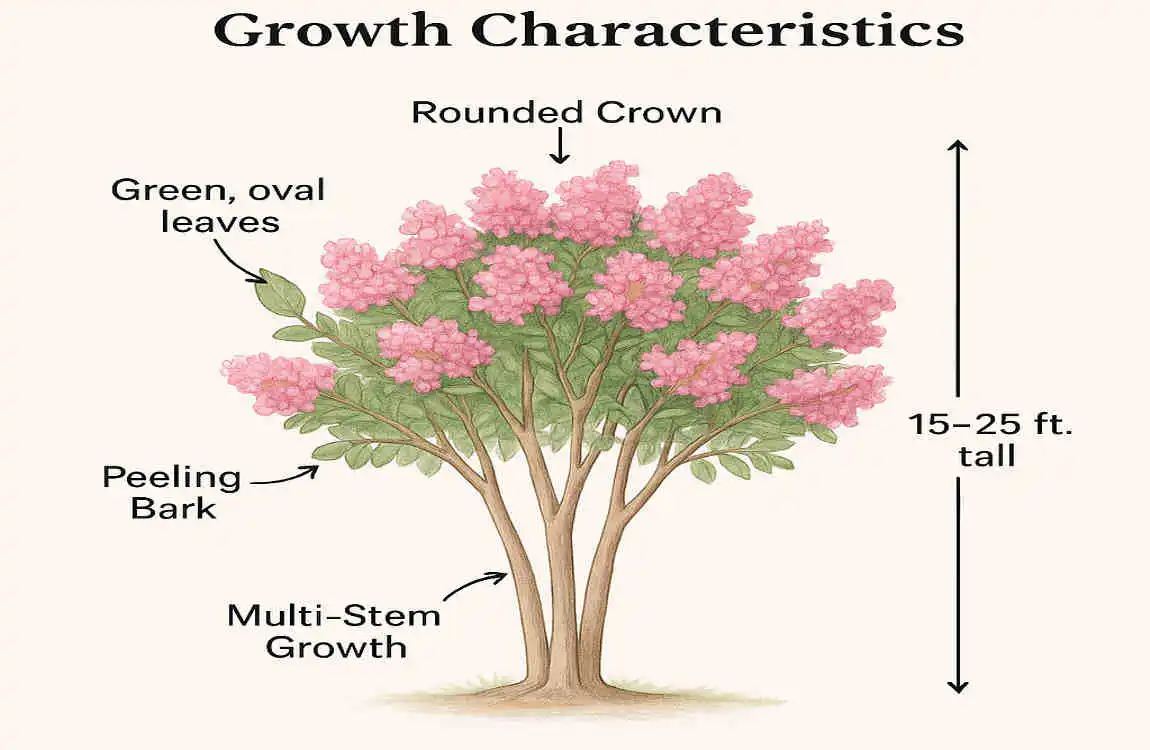
Size and Growth Habit
Crepe Myrtles vary depending on the species and cultivar, but generally, they grow as shrubs or small trees. Mature heights typically range from 10 to 30 feet tall, and their spread can be anywhere from 6 to 20 feet wide.
Their growth habit is upright and often multi-stemmed, with beautiful, peeling bark adding winter interest. The root system tends to be fibrous and shallow but can spread widely, which is essential to note when deciding where to plant.
Growth Rate and Lifespan
Crepe Myrtles grow moderately fast, especially in warm climates. You can expect noticeable growth each year, reaching mature size within about 5 to 10 years. With proper care, these plants can live for decades, becoming a long-term part of your landscape.
Importance of Considering Growth Near Your Home
Because of their size and root spread, planting Crepe Myrtles too close to your home can cause problems like cracked foundations, clogged gutters from falling leaves, or blocked windows and walkways. This is why understanding how far to plant crepe myrtle from the house is vital for a healthy plant and a sound home.
Why Proper Planting Distance is Crucial
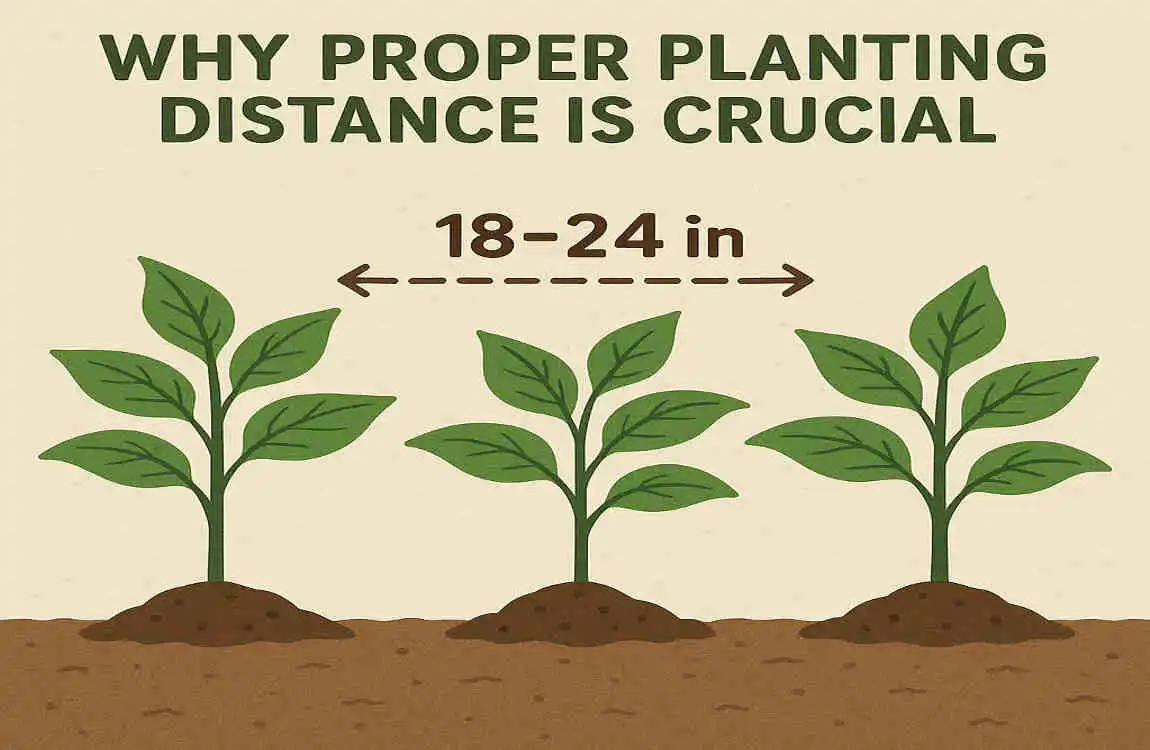
Avoiding Damage to Home Foundation and Siding
Crepe Myrtle roots may not be as aggressive as some trees, but they can still exert pressure on your foundation if planted too close. Moisture changes caused by roots can also affect soil stability.
Similarly, branches rubbing against siding can cause damage or promote mold growth.
Preventing Interference with Gutters, Windows, and Walkways
A Crepe Myrtle growing too close can block gutters with leaf litter or shade windows excessively. Branches may also hinder access along walkways.
Importance of Air Circulation and Sunlight Exposure
Good spacing ensures your Crepe Myrtle receives plenty of sunlight and airflow. This reduces problems with fungal diseases and helps the plant thrive.
Reducing Pest and Disease Risks
Crowded plants are more vulnerable to pests and diseases. Keeping a safe distance from your house and other plants reduces these risks.
Long-Term Maintenance Benefits
Finally, proper spacing makes pruning, watering, and general upkeep easier — saving you time and money.
Ideal Distance to Plant Crepe Myrtle from Your House
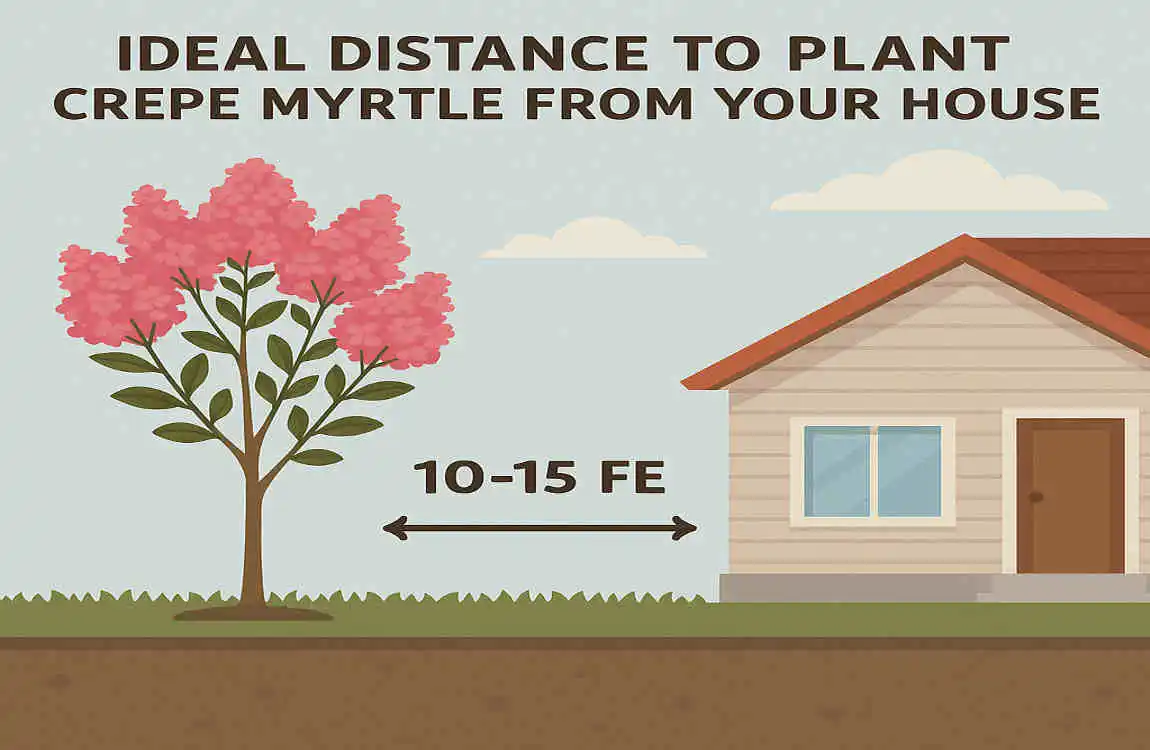
Recommended Minimum Distance Range
Experts generally recommend home planting Crepe Myrtles at least 8 to 15 feet away from your house. This range balances room for root and canopy growth without sacrificing yard space.
Factors Influencing Exact Distance
- Variety and Mature Size: Smaller dwarf varieties need less space (around 6-8 feet), while larger trees require 12-15 feet or more.
- Soil Conditions and Root Spread: Sandy soils allow more root expansion; clay soils may restrict roots but cause moisture issues.
- Local Climate and Wind Exposure: In windy areas, a greater distance helps prevent damage from swaying branches.
Tips on Adjusting Planting Distance
- Measure the mature width of your chosen variety.
- Add a buffer zone of 2-3 feet.
- Consider future growth and any nearby structures.
- When in doubt, err on the side of planting further away.
Remember, the key question is how far to plant crepe myrtle from the house to keep your landscape safe and attractive.
Step-by-Step Guide for Planting Crepe Myrtle Near Your House
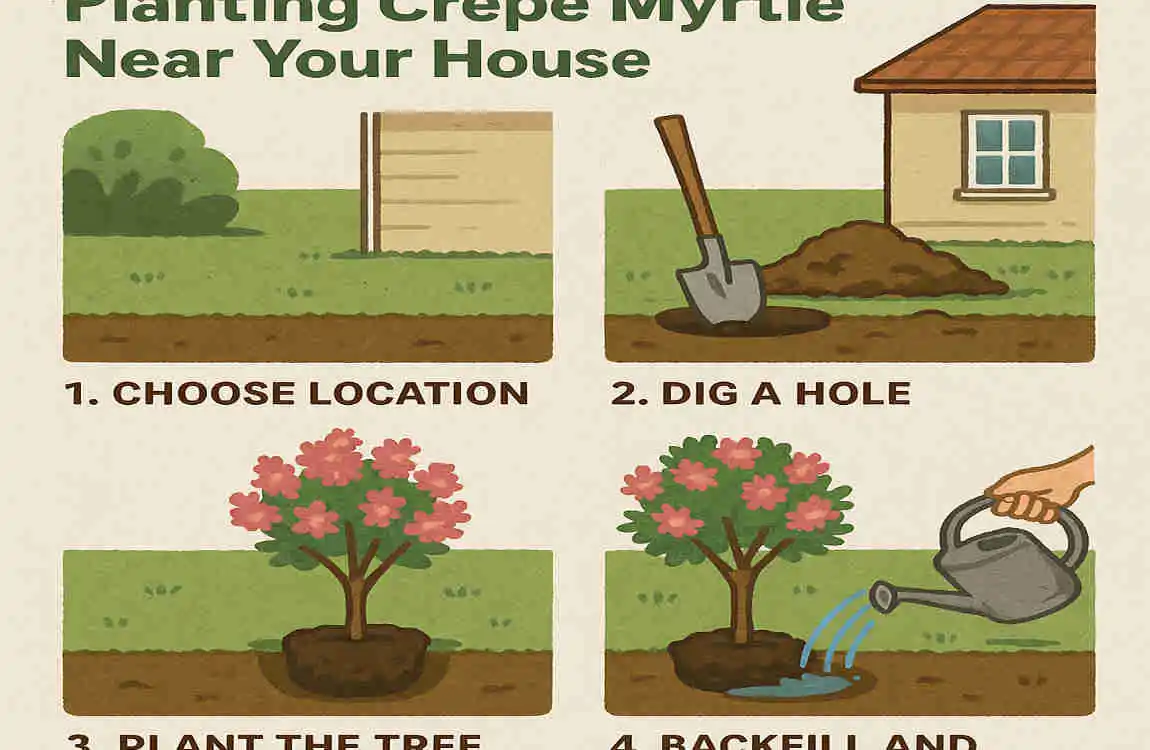
Choosing the Right Crepe Myrtle Variety for Close Planting
If space near your house is limited, select dwarf or semi-dwarf varieties such as ‘Pocomoke’, ‘Tonto’, or ‘Lipan’. These stay smaller and are easier to manage.
Preparing the Soil and Planting Site
- Clear the area of weeds and debris.
- Loosen the soil to a depth of 12-18 inches.
- Mix in compost or organic matter for nutrient-rich soil and good drainage.
Measuring and Marking the Ideal Distance
Use a tape measure to mark the recommended distance (8-15 feet) from your house foundation. Place a stake or marker at this spot for accuracy.
How to Plant Crepe Myrtle Properly
- Dig a hole twice as wide and just as deep as the root ball.
- Place the plant in the hole without burying it deeper than it was in the nursery container.
- Backfill with soil and gently tamp to remove air pockets.
- Apply a 2-3 inch layer of mulch around the base, keeping it away from the trunk.
Watering and Initial Care Tips
- Water deeply after planting.
- Keep soil moist but not soggy for the first few months.
- Avoid overwatering to prevent root rot.
Common Mistakes When Planting Crepe Myrtle Near a House
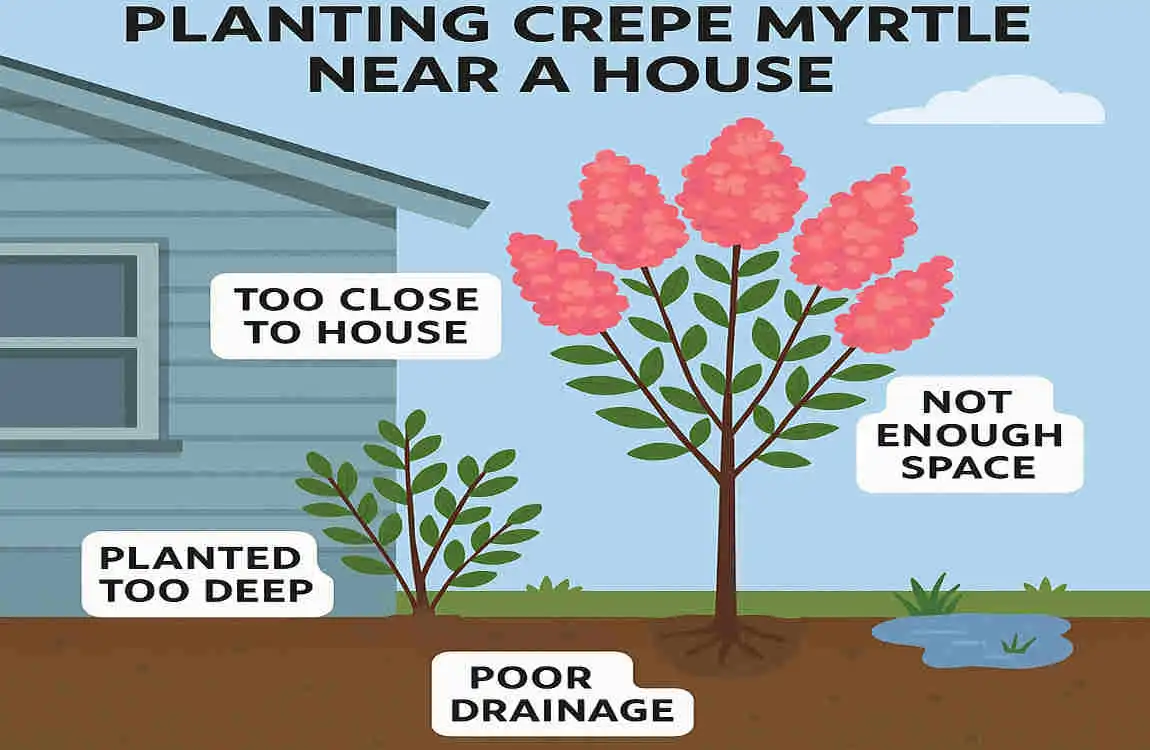
Planting Too Close: Risks and Consequences
This is the most common error. It leads to root and branch damage to your house and makes pruning difficult.
Ignoring Mature Size and Root System
Not researching the final size causes overcrowding and maintenance headaches later.
Poor Soil Preparation or Drainage Issues
Failing to prepare the soil properly stunts growth and invites disease.
Failing to Prune or Maintain the Plant Properly
Neglecting pruning results in an overgrown, unsightly plant that might interfere with your home.
Maintenance Tips for Crepe Myrtle Planted Near Houses
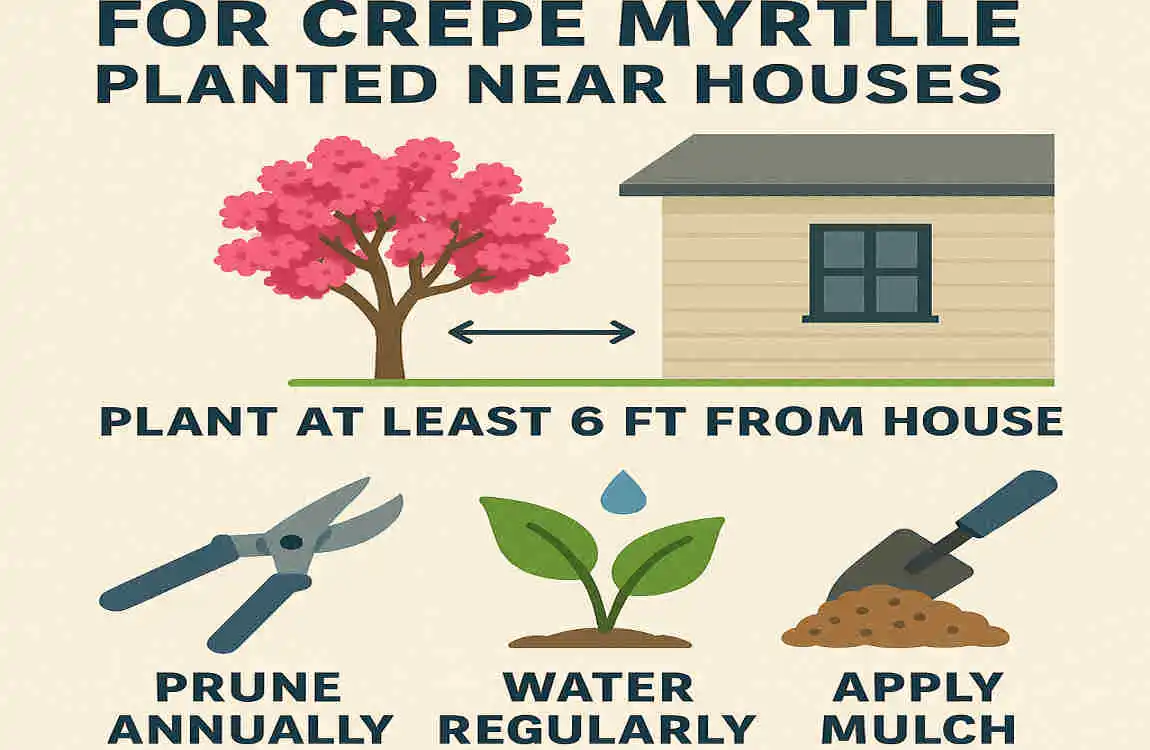
Proper Pruning Techniques
- Prune in late winter or early spring before new growth.
- Remove dead or crossing branches.
- Cut lightly to control size and encourage flowering.
Seasonal Maintenance Schedule
Season Tasks
Spring Prune, fertilize, check soil
Summer Water regularly, watch for pests
Fall : Remove fallen leaves, prepare for winter
Winter Inspect plant health, minimal pruning
Pest and Disease Management
Watch for aphids, powdery mildew, and sooty mold. Use insecticidal soap or horticultural oil as needed.
Protecting Your Home and Plant
Maintain distance, clear debris regularly, and inspect your house siding and foundation for any signs of damage.
Landscaping Ideas Incorporating Crepe Myrtle Near Houses
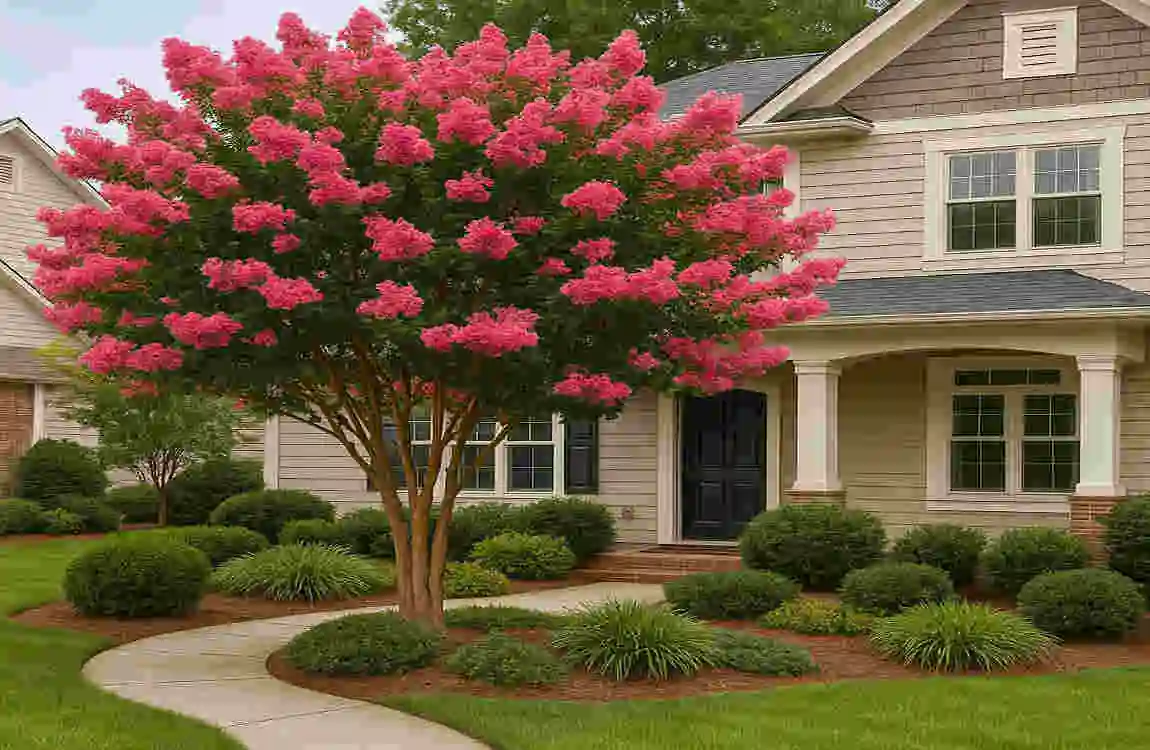
Combining with Other Plants
Pair Crepe Myrtle with low-growing shrubs, perennials, or ground covers to balance height and texture.
Using Crepe Myrtle as a Privacy Screen or Shade
Plant in clusters or rows to create natural screens or shaded spots near patios.
Decorative Mulch, Borders, and Pathways
Use stone borders or home decorative mulch to highlight Crepe Myrtle areas and protect roots from foot traffic.




